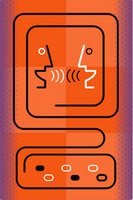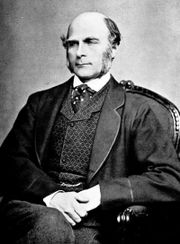
The following is a post by the blogmaster (Kevin McGrew), who is also a member of
IQs Corner Virtual Community of Scholars project.
There can be no doubt that the statistical tool of
factor analysis has played a huge role in individual differences research, particularly in the development and validation of theories of intelligence. And, few would also argue that the history of how to properly run factor analysis has been a hot topic of debate for decades. There is a plethora of journal articles, books, and book chapters devoted to this method.
With this in mind, it was a pleasant surprise to stumble across the exploratory factor analysis (EFA) article listed below. Although much has been written, to the neophyte it is often hard to get an grasp on some of the major issues and nuances of the various steps involved. The Henson and Roberts article provides and excellent overview of the major steps and issues in EFA and ends with some author recommendations on how to use and report EFA studies. I found the literature review the most useful and recommend it for reading by those who are (a) experienced in EFA (to provide some reminders of the key issues---also as a good article to cite for background regarding the issues in one's own work), (b) novices who want to get "up-to-speed" regarding some of the key issues and methodological nuances, and (c) others who read research articles that are based on EFA (to better evaluate the appropriateness and rigor of the methods used in research reports).
- Hensen, R. & Roberts, J. (2006). Use of exploratory factor analysis in published research: Common errors and some some comment on improved practice. Educational and Psychological Measurement, 66 (3), 393-416. (click here to view)
Abstract- Given the proliferation of factor analysis applications in the literature, the present article examines the use of factor analysis in current published research across four psychological journals. Notwithstanding ease of analysis due to computers, the appropriate use of factor analysis requires a series of thoughtful researcher judgments. These judgments directly affect results and interpretations. The authors examine across studies (a) the decisions made while conducting exploratory factor analyses (N = 60) and (b) the information reported from the analyses. In doing so, they present a reviewof the current status of factor analytic practice, including comment on common errors in use and reporting. Recommendations are proffered for future practice as regards analytic decisions and reporting in empirical research.
Technorati Tags:
psychology,
educational psychology,
intelligence,
statistics,
exploratory factor analysis,
factor analysis,
EFA,
psychometrics,
intelligence theorypowered by performancing firefox




 The following is a post by the blogmaster (Kevin McGrew), who is also a member of IQs Corner Virtual Community of Scholars project.
The following is a post by the blogmaster (Kevin McGrew), who is also a member of IQs Corner Virtual Community of Scholars project.